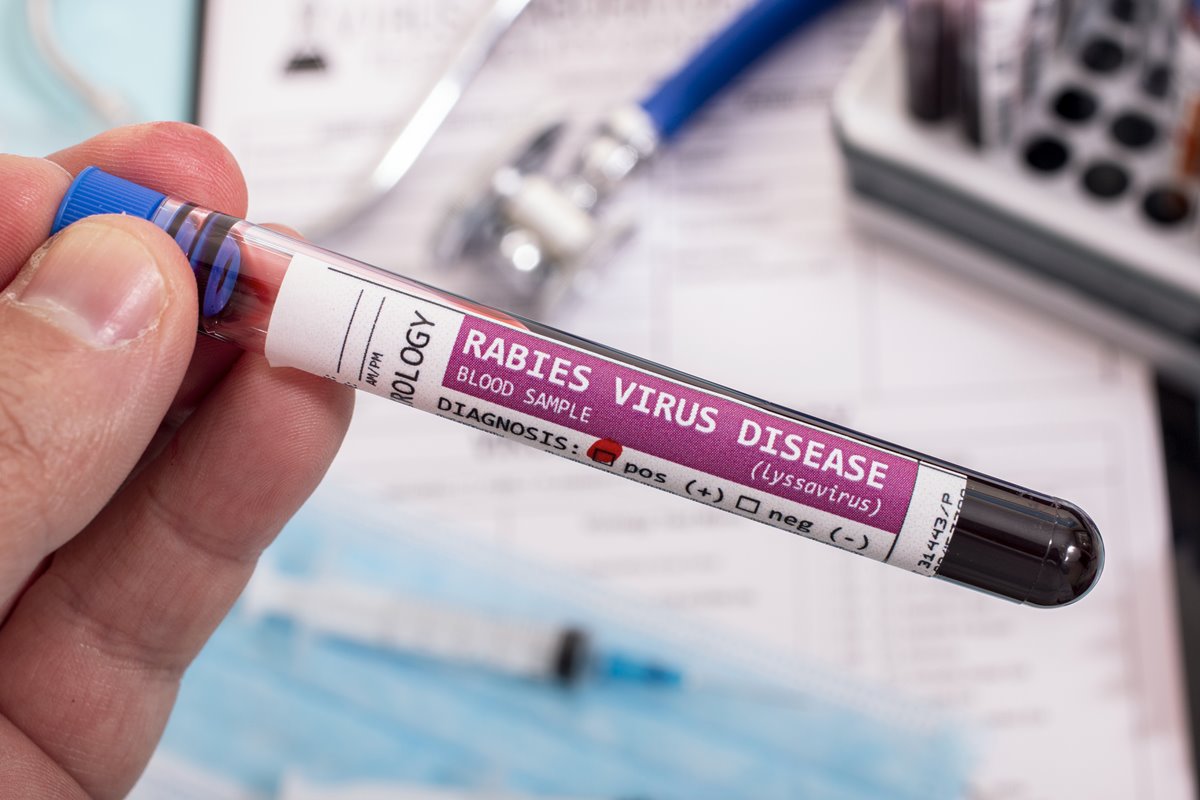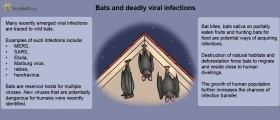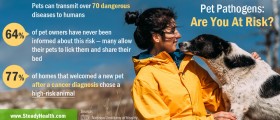Rabies is a viral disease caused by the virus of the same name. The virus leads to acute encephalitis and is inevitably fatal if one does not receive proper post-exposure protection. The infection primarily affects animals (therefore it is classified as zoonosis) but it can be easily transmitted to humans.

Unfortunately, if one does not receive proper post-exposure vaccine the symptoms and signs of the infection soon develop. Initially patients develop fever, general weakness and headache while progression of the infection leads to more severe symptoms and signs such as insomnia, anxiety, confusion, partial paralysis, hallucinations, agitation and hypersalivation accompanied by swallowing difficulty and hydrophobia.
Causes of Rabies
Rabies virus is transmitted via animal bites. To be more precise the saliva of the infected animal contains plenty of viral particles and the very contact with the infected animal (its saliva) may cause transmission of the virus. The virus is capable of entering the body through the microscopic cuts in the skin. It can also enter the body via mucous membranes.
Any animal can be a source of infection. However, in the majority of cases rabies is contracted from pets and farm animals, cats, cows, dogs, ferrets, goats, horses and rabbits. Furthermore, the infection may develop after a contact with infected saliva of wild animals such as bats, beavers, coyotes, foxes, monkeys, raccoons, skunks and woodchucks.
Even though no case of interhuman transmission has been reported there is a chance of virus transmission if the organs taken from an infected organ donor are used in healthy organ transplant recipients.
Prevention of Rabies
There are several ways to prevent rabies. The first thing each and every pet holder should do is vaccinate his/ her pet/ pets. The best way is to consult a veterinarian about the proper timing for vaccination against rabies. Furthermore, pets are supposed to be confined and even if they are taken outside they must be under permanent supervision. This way an owner may prevent contact with potentially infected animals.
Small pets such as guinea pigs cannot be vaccinated. This is why they must be properly protected against potentially infected predators. All stray animals must be reported to local authorities. And finally, people who are professionally exposed to rabies (veterinarians, animal handlers, rabies researchers, people in frequent contact with potentially infected animals as well as international travelers who travel to area with rabies) must be properly protected.
In case of any contact with a wild animal particularly if the person has been bitten or came into a close contact with animal's saliva it is essential for the person to consult the doctor immediately in order to receive proper post-exposure prophylaxis.
- www.cdc.gov/rabies/index.html
- www.cdc.gov/rabies/symptoms/index.html
- Photo courtesy of SteadyHealth

















Your thoughts on this
Loading...